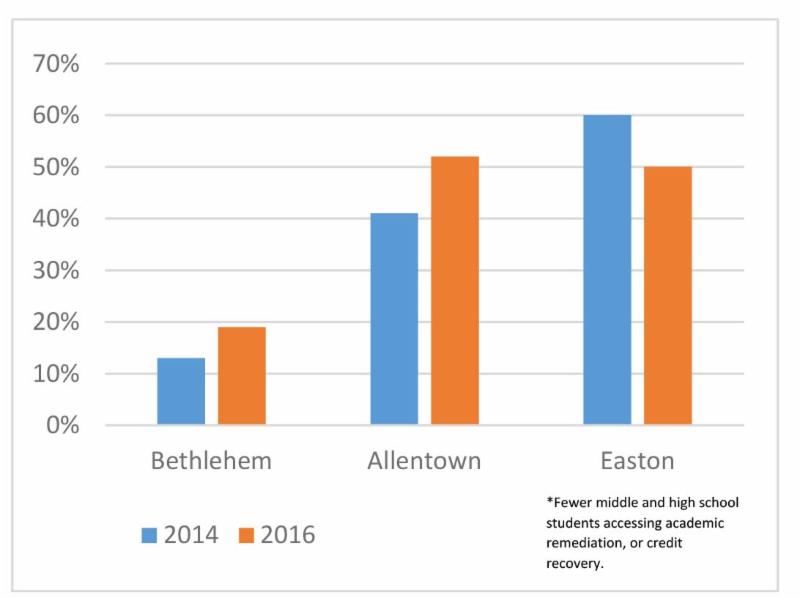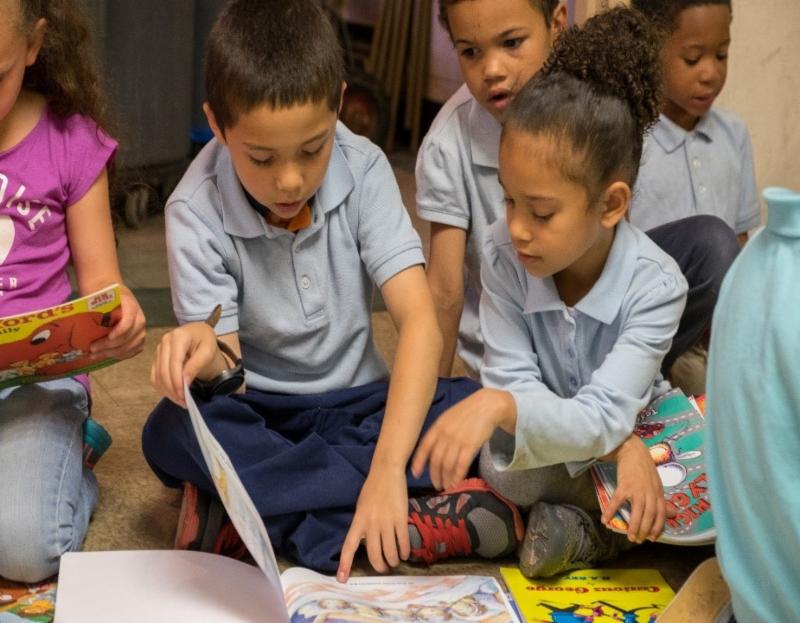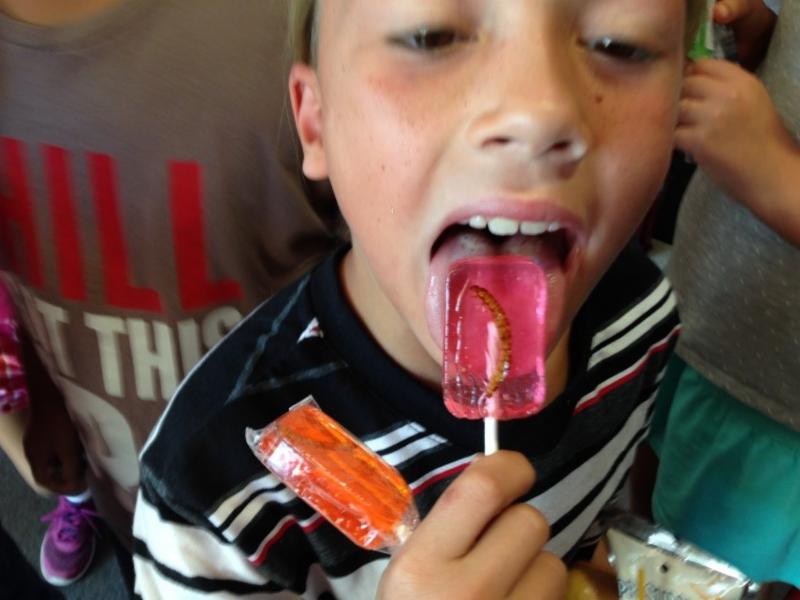| 2017 Summer Learning Assessment in the Lehigh Valley |
Learning Doesn't Take a Summer Vacation
|
|
On average, low-income children start school 12-14 months behind their peers. And once summer begins, these students can lose 2-3 months of math and reading skills - called the "Summer Slide." Over time, these students can fall 2-3 entire grade levels behind their peers by the end of 5th grade. United Way is determined to fight for the success of our students and increase quality summer learning opportunities.
|
Lehigh Valley Summer Learning Coalition (LVSLC) is making a difference
|
Made up of 50+ local organizations, LVSLC is committed to raising awareness around the importance of summer learning and increasing access of programs across the Lehigh Valley.
"Summer learning allows our students to reinforce and extend foundational reading skills in a more personalized manner, and the reading data shows that the continuity of literacy instruction over 12 months significantly helps Bethlehem Area School District students. We are thankful to our community for partnering with us to keep children learning over the summer." - Dr. Jack Silva, Assistant Superintendent for Education/Chief Academic Officer, Bethlehem Area School District
|
| LVSLC efforts to expand access to summer programming are paying off! |

From 2014 to 2016, Allentown, Bethlehem and Easton have seen a 6% overall increase in the number of low-income youth engaged in summer learning (from 35% to 41%). This is the result of awareness efforts by the LVSLC and donations secured from local corporations, banks, foundations and individuals.
|
|
Dramatic increases in the number of elementary-aged students engaged in summer learning opportunities
Low-income students not reading at grade level by the end of 3rd grade are 13 times more likely to drop out of school. Engaging younger students in summer learning is key to achieving reading proficiency.
- A 284% increase in Easton (up from 106 to 411)
- A 116% increase in Bethlehem (up from 152 to 329)
- A 12% increase in Allentown (up from 470 to 530)
|
The right amount of quality summer learning beats the "Summer Slide"
|
|
Great results happen when students receive the right amount of academic and enrichment programming during the summer (between 100-150 hours). On average,
94% of students were able to maintain their spring reading levels with between 10-30% of those students actually gaining at least one month in reading. Additionally, eight in 10 summer program providers made sure their students read at least 30 minutes per day.
"One young boy struggled with academics and good behavior all school year. We debated about putting him in our summer program because of his behavior, but in the end decided to give him a chance. Let me tell you, he was a completely different kid in our summer program! With the small class sizes, extra help and fun activities, he became a real leader and came every day with a big smile on his face. It was absolutely unbelievable the change our summer program had on this boy."
|
Summer learning programs fight summer hunger
|
Nationally, only 15% of students who receive free or reduced breakfast and lunch during the school year are able to access these meals over the summer months. The LVSLC partnered with the Lehigh Valley Food Policy Council to fight summer hunger by connecting more youth to summer programs and empowering summer providers to participate in the federal summer meals program. In 2016, over 4,800 low-income youth were served approximately 95,000 meals over the summer months. This represents approximately 20% of the total number of youth eligible for free and reduced meals during the school year across our three target cities (Allentown, Bethlehem and Easton). While higher than the national average, too many low-income Lehigh Valley youth go hungry in the summer.
|
With additional funding, more students could be engaged in summer learning
|
|
Despite our success in increasing access, the summer learning opportunity gap remains too large for low-income youth.
Summer learning providers are currently serving 9,731 low-income students, or approximately 41% of all low-income youth in Allentown, Bethlehem and Easton. With additional funding, 7,000 additional students could be engaged in quality summer learning programs.
|
PPL Foundation, employees turn the page on child literacy
|

The PPL Foundation and PPL Corp employees donated more than 25,000 new and gently used books to more than 5,000 students in 21 schools through its
Cover to Cover program in June, including 10 high-need schools in the Lehigh Valley.
The project provides books to students in grades k-3 who are at risk of falling behind in reading over the summer.
"
PPL employees have shown their generosity by giving the gift of reading," said Lissette Santana, senior manager, Corporate Relations. "Through Cover to Cover we have positively affected thousands of young lives. We're excited about continuing this program next year and making a difference in the lives of so many students."
In addition to the
Cover to Cover project, PPL Corp contributed $25,000 for United Way's school-based summer learning programs.
|
|
Donegan Elementary and Da Vinci Science Center Partner in Summer Fun
|

Last summer, Donegan Elementary School and the Da Vinci Science Center worked together to offer a new STEM (Science, Technology, Engineering, Math) Summer Learning program. The program offered students hands-on, student-led investigations into robotics and insects that carefully aligned with literacy skills like narrative writing and reading comprehension.
It's not just writing, it's writing a story about your robot, Bob, and his trip around the world, then programming Bob to take the trip. It's not just reading, it's reading more about where insects go during the day to find which insects are hiding around the playground while conducting a biological study.
Exploring their own questions motivates students to capture their thoughts and ideas about the topic they are investigating. This fun approach also helps students create memories, which are key to sustaining learning. The most memorable experience - eating bugs! Students snacked on mealworm lollipops and cricket chips at the end of their insect investigation, while learning about how insects are used as a food source around the world.
Many students soared in their reading and writing, while all students reported having fun learning more about STEM subjects. With positive results from last summer, Donegan and Da Vinci Science Center intends to expand this partnership for the upcoming summer with new investigations.
|
- Host a used book drive to donate to local summer program providers
- Donate art supplies to a local provider
- Volunteer to read to children at a local school or summer learning provider
- Donate to summer learning scholarships through LVSLC
- Call your local legislators and ask for greater investments in summer learning for low-income youth
|
|
|
United Way of the Greater Lehigh Valley | 1110 American Parkway NE | Suite F-120| Allentown | PA | 18109
P: 610.758.8010
© United Way of the Greater Lehigh Valley, All Rights Reserved
|
|
|
|
|